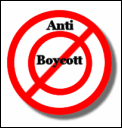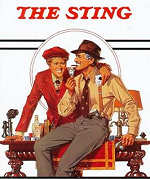 News accounts of the circumstances surrounding the agreement of Chiquita Brands to pay a $25 million criminal fine for payments made to a rebel group in Columbia don’t really tell the whole story. That story can be found in the information filed by the U.S. Attorney with the District Court in the District of Columbia. The information — a legal document that is serving as the predicate for Chiquita’s plea agreement — shows the struggle of the company, generally unreported by the media, to deal with the predicament in which it found itself: it could protect its employees from physical harm and violence threatened by the rebels only by making payments that might be illegal under U.S. law. Nor do the news reports reveal at least one significant deficiency in the government’s case against Chiquita.
News accounts of the circumstances surrounding the agreement of Chiquita Brands to pay a $25 million criminal fine for payments made to a rebel group in Columbia don’t really tell the whole story. That story can be found in the information filed by the U.S. Attorney with the District Court in the District of Columbia. The information — a legal document that is serving as the predicate for Chiquita’s plea agreement — shows the struggle of the company, generally unreported by the media, to deal with the predicament in which it found itself: it could protect its employees from physical harm and violence threatened by the rebels only by making payments that might be illegal under U.S. law. Nor do the news reports reveal at least one significant deficiency in the government’s case against Chiquita.
The basic story is this. In 1997, Carlos Castaňo, the head of Autodefensas Unidas de Colombia (“AUC”) met with officials of C.I. Bananos de Exportación, S.A. (“Banadex”), Chiquita’s wholly-owned Colombian subsidiary. During that meeting, Castaňo indicated to the General Manager of Banadex that it should make certain payments in order to avoid physical harm to Banadex employees. As a result, Banadex began to make the requested payments to AUC. At the time that Banadex began to make the payments to AUC, AUC had not been declared by the United States as a “Foreign Terrorist Organization” (“FTO”) or a “Specially Designated Global Terrorist” (“SDGT”) meaning that the payments to AUC did not violate U.S. law. Senior executives of Chiquita (unnamed by the information) were aware of and approved the payments to AUC.
In September 2001, the Department of State designated AUC as an FTO. Thereafter in October 2001, AUC was designated an SDGT by the Office of Foreign Assets Control (“OFAC”). After both of those designations, payments by a U.S. person to AUC would be illegal.
It was not, however, until February 2003 that management of Chiquita learned that AUC had been designated as an FTO and an SDGT. At that point, Chiquita consulted with legal counsel which advised Chiquita that the payments were illegal. In April 2003, the Board of Chiquita was first advised of the payments by Banadex to AUC. The Board instructed the company to disclose the matter immediately to the DOJ. Additionally one member of the Board proposed that the company should sell its operations Columbia.
Pursuant to the Board’s directive, officials of Chiquita met with the DOJ in April 2003. After the meeting, those officials believed that DOJ had indicated that it wouldn’t pursue Chiquita for prior payments. According to the information, Department of Justice officials stated that “the issue of continuing payments was complicated.” Employees of Banadex, however, continued to make these payments. These continued payments were revealed to the Chiquita Board in December 2003. One member of the Board reiterated his opinion that the company should sell its operations in Columbia.
Banadex made three more payments to AUC after that meeting, the last being paid in February 2004. In June 2004 Chiquita sold Banadex to a third-party.
The central difficulty with the government’s case here is that the U.S. law forbids payments by U.S. persons. Section 594.315 of the SDGT regulations make clear that a U.S. person is a U.S. citizen or a company organized under the laws of the United States. Banadex, which made the payments, was not a U.S. person under that definition and its payments were not a violation of U.S. law. Individual employees of Chiquita were aware of and facilitated the payments and were arguably guilty as individuals. It is not clear, however, that their behavior could be attributed to Chiquita or result in criminal liability for Chiquita. Nonetheless, the criminal information asserts charges only against Chiquita and not against the individual executives who were aware of and facilitated the payments by Banadex.
Even if Chiquita can be held liable for the Banadex payments, the $25 million payment seems excessive. After all, even though the laws at issue don’t provide an exception for protection or ransom payments, Chiquita’s decision to act to protect the safety of its employees is understandable. Perhaps the prosecutors didn’t really believe the AUC threats, but that seems inconsistent with the demonstrated record of murder and violence that landed the AUC on the Specially Designated Nationals (“SDN”) list in the first place.
Additionally when the company began to make the payments, they were perfectly legal. After the company learned in 2003 of the designation of the AUC, it promptly turned itself in. The information tries to suggest that Chiquita didn’t act promptly by noting that the “AUC’s designation was first reported in the national press . . . on September 11, 2001.” My guess is that given the other events of that date, many people (including the federal prosecutors in DC who filed the information) might have missed that story.
 An article in the March 19 edition of the Jerusalem Post reports that Iraqi firms appear to be stepping up their participation in the Arab League Boycott of Israel. The article bases its report on figures contained in the 2006 Annual Report of the Bureau of Industry and Security:
An article in the March 19 edition of the Jerusalem Post reports that Iraqi firms appear to be stepping up their participation in the Arab League Boycott of Israel. The article bases its report on figures contained in the 2006 Annual Report of the Bureau of Industry and Security:
 Posted by
Posted by  Category:
Category: 

 According to an
According to an  Export Law Blog previously
Export Law Blog previously  News accounts of the circumstances surrounding the agreement of Chiquita Brands to pay a $25 million criminal fine for payments made to a rebel group in Columbia don’t really tell the whole story. That story can be found in the
News accounts of the circumstances surrounding the agreement of Chiquita Brands to pay a $25 million criminal fine for payments made to a rebel group in Columbia don’t really tell the whole story. That story can be found in the On March 14 the Bureau of Industry and Security (“BIS”)
On March 14 the Bureau of Industry and Security (“BIS”) 

